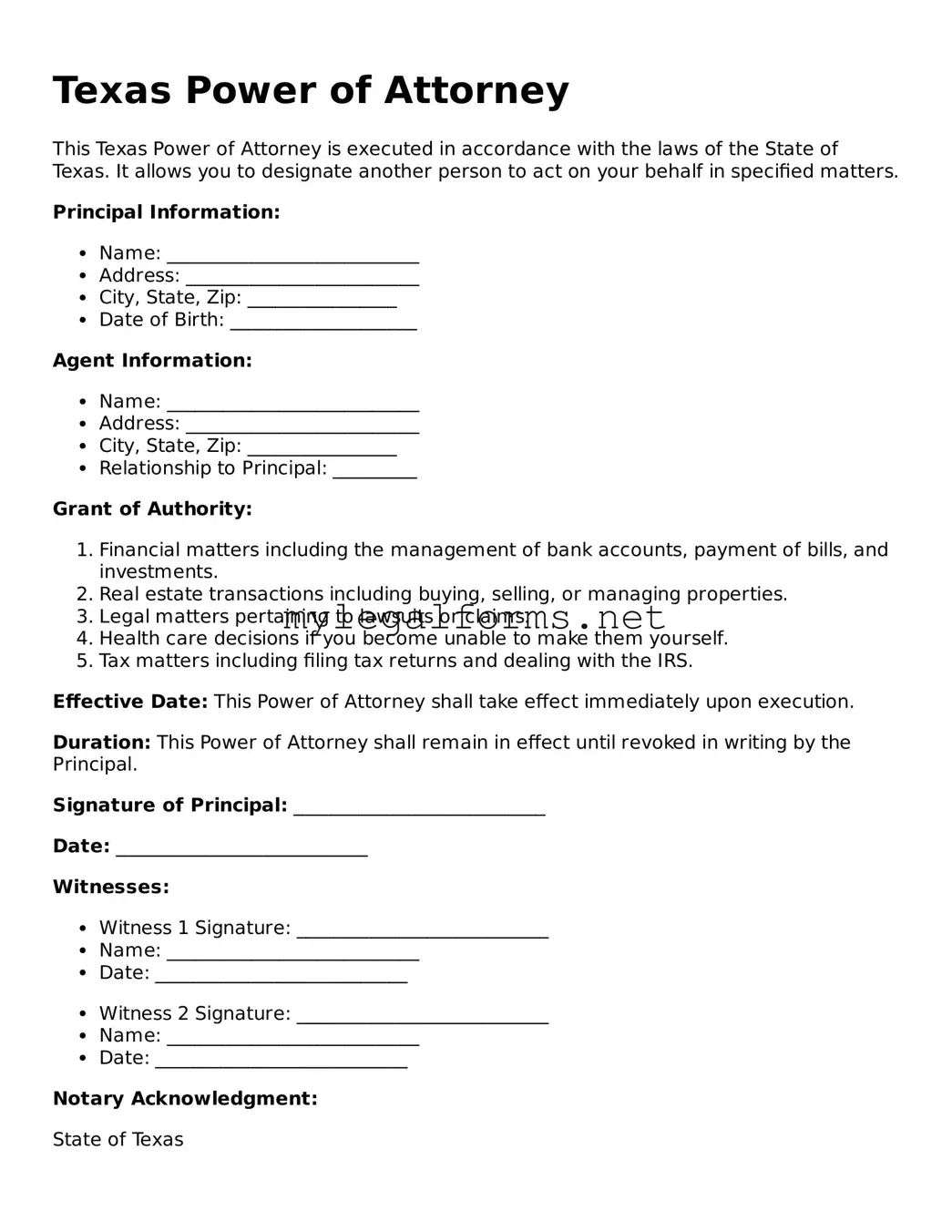Power of Attorney Document for Texas State
A Texas Power of Attorney form is a legal document that allows an individual, known as the principal, to designate another person, referred to as the agent, to make decisions on their behalf. This form can cover a range of decisions, including financial and healthcare matters, depending on the specific powers granted. Understanding the nuances of this document is crucial for ensuring that one’s wishes are honored and that the appointed agent can act effectively when needed.
Launch Power of Attorney Editor

Power of Attorney Document for Texas State
Launch Power of Attorney Editor

Launch Power of Attorney Editor
or
⇓ PDF Form
Complete the form at your pace — fast
Finish your Power of Attorney online and download the final version.